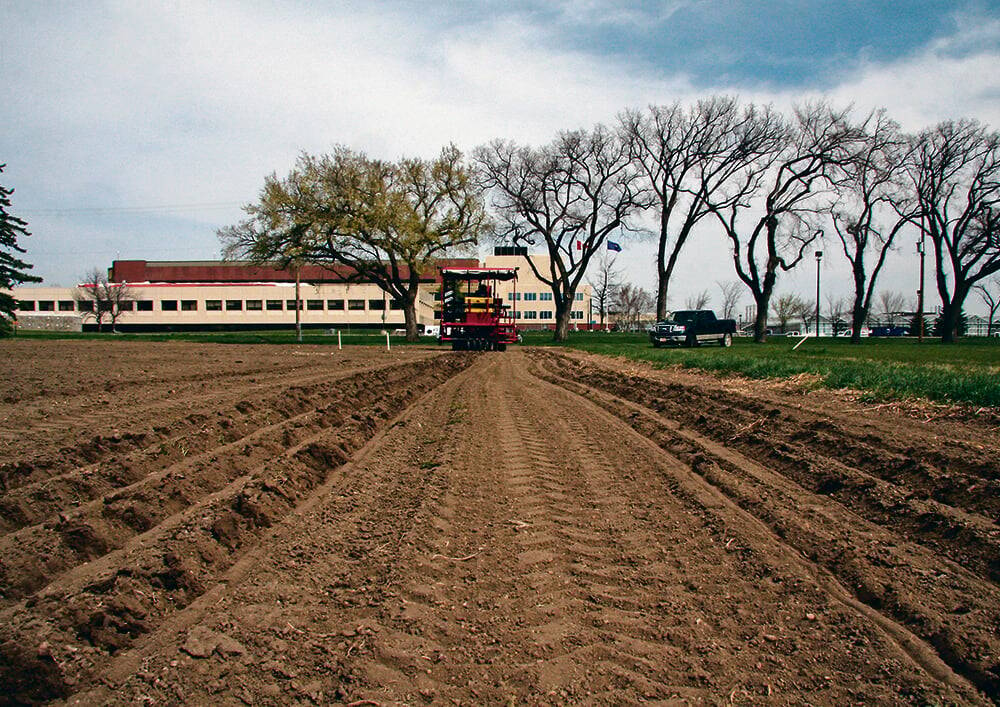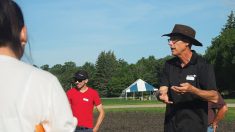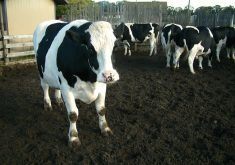A Manitoba researcher specializing in plant proteins has won an award for emerging researchers.
Filiz Koskel was one recipient of the Terry G. Falconer Memorial Award from the Winnipeg Rh Institute, aimed at rewarding early-career researchers. She is a food science researcher at the Food and Human Nutritional Sciences Department at the University of Manitoba and her work tackles world hunger through sustainable plant-based foods. It also aims to develop new ways to monitor and improve the quality of Canadian crops from field to table.
Earlier in her career, Koskel focused on the processing of cereals and pulses for baked products. More recently, she’s been focusing on extruded foods. Extrusion processing has been used since the 1940s and ‘50s in the food industry, initially for making puff snacks like Cheetos or breakfast cereals such as Cheerios.
Read Also

A bright side to AAFC farm research cuts?
Policy wonks say trimming 15 per cent from Agriculture and Agri-Food Canada’s budget may not be a bad thing.
Koskel said there are two different methods used for the extraction process when working with plant proteins. When processed under lower moisture conditions, products are often added to burger patties or sausages as high-protein filler to reduce costs and improve the “mouth feel” of the food.
“For example, to make it a little bit more juicy or chewy, we would add some plant proteins into a beef burger,” Koskel said. “That’s very common in the food industry.”
Using the same extrusion process, but under high-moisture conditions, food scientists have created the vegan or vegetarian meat alternatives now seen on grocery store shelves.
“We use more concentrated plant proteins in these formulations and process them with layered and fibrous structures, so that when you bite into them, they will mimic animal protein, like chicken breasts,” Koskel said.
But for her, it’s about more than fillers and niche market food products.
“We have to make sure that we have a world where we are able to sustainably produce food and make sure that we have a secure food future,” she said.
She sees plant-based proteins playing a big role on that front in coming years. While Koskel embraces the sustainability factor of her work, that doesn’t mean she spends all her time advocating veganism. She understands the importance of animal agriculture.
Local connection
Koskel came by her interest in food science honestly.
She was born in Winnipeg while her father was studying for his master’s degree in the University of Manitoba agriculture faculty. She has no recollection of her time in Manitoba because her family moved back to Turkey when she was three years old. However, her father’s work as a cereal scientist sparked her interest in the field. An important childhood memory came during a ‘bring your kids to work’ day.
“I remember when I was a very young kid going to my father’s workplace,” she says. “He used to work in a cereal quality lab. I remember playing with bread dough from a very young age. And I think that’s when I thought working in an area related to food would be interesting.”
After completing her undergraduate degree in Turkey, Koskel came back to Winnipeg in 2009 to attend grad school at the University of Manitoba.
“I was interested in cereals and pulses, and Manitoba is one of the greatest places in the world to be if you have an interest in working with cereals,” she said.
Her PhD thesis was on how bubbles in bread dough affect the quality of the final loaf. Evidently, that early fascination with bread dough remained with her.
After finishing her PhD, Koskel did a post-doc at the University of Manitoba and another at the University of Saskatchewan before landing her current position as an assistant professor in the Food and Human Nutritional Sciences Department at the U of M.
Koskel’s voice is animated when she speaks about her work at the university and about food sciences in general.
“I just find that world fascinating,” she said. “Every day, there is another food product on supermarket shelves. Every day there’s another innovation in a high-fibre food or high-protein food. Being in this area and making sure that we are able to provide different healthy options to Canadians is a very exciting job to be doing.”















